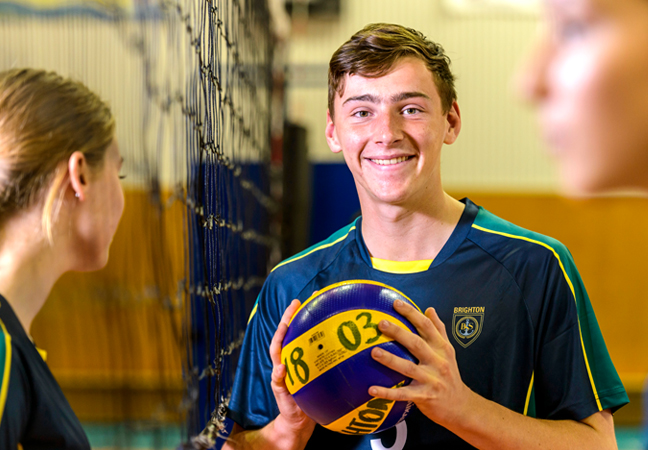We know that it’s a time of high stress for our senior students with exams coming up. With good planning and support, this time can be managed as positively as possible. The end is in sight!
Time Management:
- Manage your time effectively by ensuring that you aren’t overloading yourself with too many commitments. You may need to reconsider how many work shifts or social occasions that you are committing to. Remember, there are only 24 hours in each day.
- Utilise visual timetabling strategies to see how much time you can realistically set aside for everything you want to commit to (e.g. school, sports, music, hobbies, work, socialising, gaming, etc.). The spreadsheet that senior school students were provided with at the start of Term 1 in home group is an excellent resource to use to help us understand if we are over-committing our time!
Planning:
- Set goals for each day or week on what you want to study. Write these goals down.
- Prepare your exam period by asking for less shifts or time off at work.
- Set up a study space, preferably not in your bedroom. If it needs to be in your bedroom, don’t study on your bed. This allows you to keep your sleep space and work space separate which will help when it come to relaxing at night.
Self Care:
- Give yourself permission to have times where you can relax and have fun. Schedule this time in. Rest is just as important as study!
- Get outside every day! Exercise or go for a short walk every day to help your overall wellbeing. Ensure you’re getting sunlight every morning when you first wake up to help with your sleep.
- Make sure that you are eating a good balance of nutritious foods and fun foods, and that you are regularly drinking water.
- Energy drinks will actually hinder your study time as the sugar and energy crash is worse than if you’d had water. One study (https://www.ncbi.nlm.nih.gov/pmc/articles/PMC4682602/) has found that energy drinks increase anxiety, insomnia and restlessness – all things that aren’t helpful during exam time.
- Limit caffeine use after 12 noon.
- Sleep well! Don’t undo all your hard work. Your brain will struggle to remember what you have studied if you aren’t getting enough sleep. Check out https://headspace.org.au/explore-topics/for-young-people/get-enough-sleep/ for tips that will help your sleep hygiene.
Focus:
- Ideally, switch off your phone or place it in another room while you are studying. You can also use apps like Forest, Flora and Hatch to stop yourself from checking your phone while you’re trying to study.
- Set yourself limits on your phone use. Use apps like “Wellspent” and set screentime limits* in your settings on your device.
- Use previous exams or assignments to help you get an idea of what to expect.
- Use online apps like “Quizlet” or “Anki” to practice studying by using evidence-based “active recall” techniques.
Study smart:
- Work out what time of day you find easiest to focus, and plan to work then.
- Use the “Pomodoro Study Method”: Instead of trying to study for 2-3 hours straight, break this time down into more manageable chunks! Give yourself 20-25 minute blocks of time to study, with a 5-10 minute break in between. This allows your brain to maintain concentration, and can lead to less distractability.
- Try body-doubling! Study with a friend or in a place where other people can see you, so that you can be held accountable.
- Chat with your friends and ask them what they are doing that helps.
- Talk to your teacher to get tips and advice. Make sure you contact them via Daymap or email if you have questions.
Day of exam:
- Have breakfast! Your focus, memory and attention will be better if you have started the day with a nutritious meal.
- Take water and a small snack with you for the exam.
- Reward yourself after with something that makes you happy.
- Don’t compare your answers with your friends after the exam is over! Comparing answers won’t change what you’ve already submitted, and could lead to unpleasant emotions afterwards. Make a pact with your friends to not talk about exam answers after you leave the room.
Help is available:
- Ask for help if you need it. Check in with your parents, friends, teachers or support people at school, such as our Youth Workers, Mat and Kate, or Ms Jones, Wellbeing for Learning Leader.
- If needed, contact a support line such as Kids Help Line on 1800 55 1800, Lifeline 13 11 14, or Headspace https://headspace.org.au/online-and-phone-support/
For more tips, head to the Headspace website: https://headspace.org.au/explore-topics/for-young-people/prepare-for-exams/
*Screen time limits:
iPhones – built into the device. Go to ‘Settings’, then under ‘screen time’, you can select ‘app limits’. You can then toggle how much time you are allowed to have on these apps within a 24 hour limit. Also, go to ‘Settings’, then under ‘Downtime’ you can also decide what time all the apps shut down for the day.
Android – built into the device. Go to ‘Settings’, then under ‘Digital Wellbeing and Parental Controls’, you can select ‘App Timers’. You can then toggle how much time you are allowed to have on these apps within a 24 hour limit. Also, go to ‘Settings’, then under ‘Wind Down’ you can decide what time of day you stop receiving notifications on your phone.









